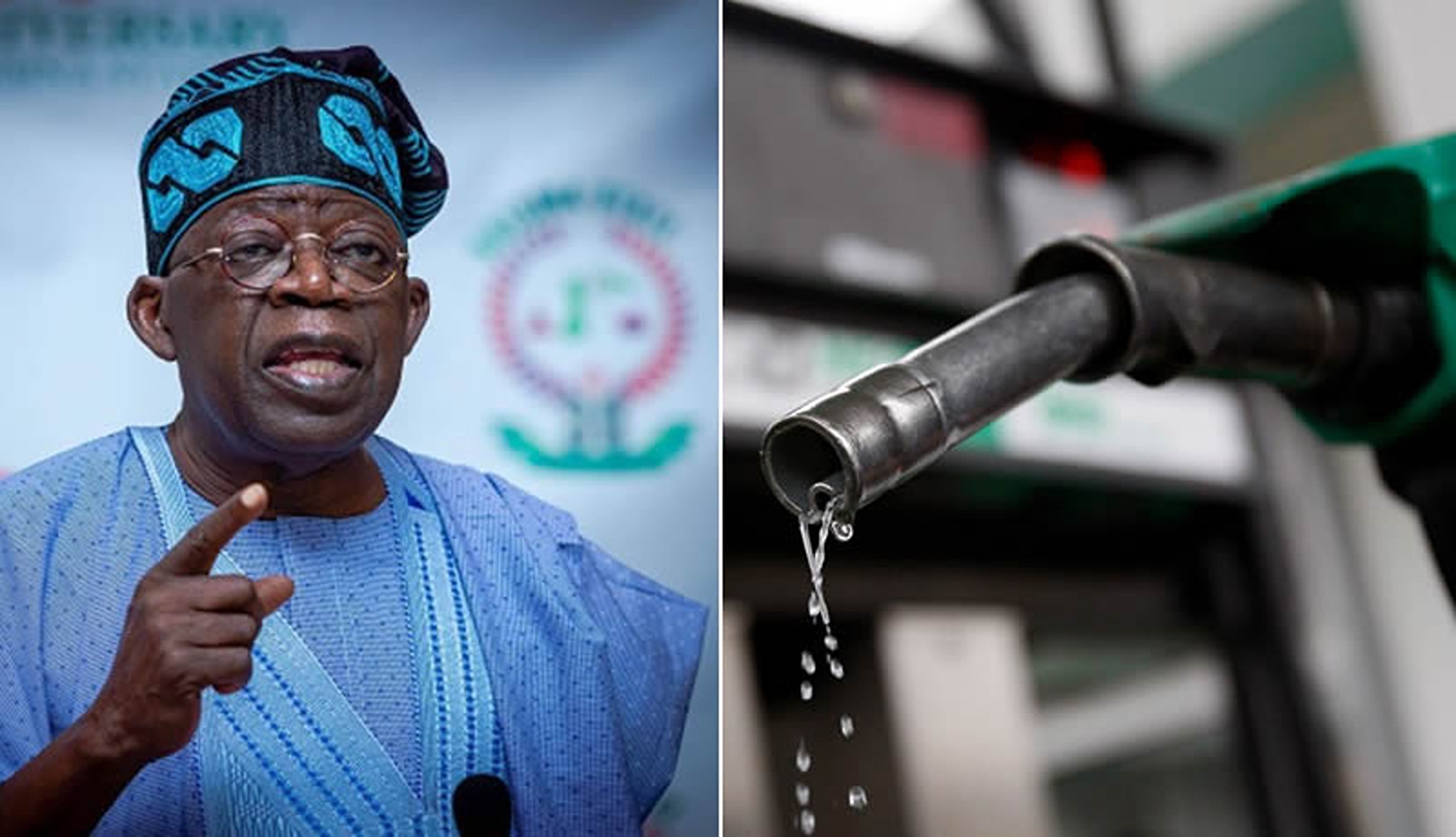News
Hardship Looms Under Tinubu As Petrol Marketers Peg Fuel Price At N1200/Litre

Petrol Marketers have pegged the Fuel Price at N1200 per litre, a situation that is expected to increase the current hardship under Tinubu.
Newsone Nigeria reports that the Nigerian National Petroleum Company Limited and fuel marketers under the aegis of the Independent Petroleum Marketers Association of Nigeria, clashed again on Tuesday, January 2, 2024, over the removal of subsidy on petrol.
This online news platform understands that the clash between the NNPC and Petrol Marketers came against the backdrop of the depreciation of the naira against the United States dollar at both the official Investors and exporters Window and the parallel market.
The Naira closed at 998/dollar at the official market, while it traded at 1,225/dollar at the black market on Tuesday. On the back of the falling naira rate, economists and oil marketers said PMS subsidy was increasing in recent times, but the NNPC quickly countered these positions and declared that it was recovering its full cost on the importation of Premium Motor Spirit, popularly called petrol.
Oil marketers told PUNCH on Tuesday that subsidy on petrol was increasing considering the crash of the naira against the United States dollar and the cost of crude oil, stressing that PMS should sell for N1,200/litre in a free market. Petrol, which is solely imported into Nigeria by the NNPCL, currently sells for between N617/litre to N660/litre, depending on the location of purchase in Nigeria.
The Chief Executive Officer of the Centre for the Promotion of Private Enterprise, Dr Muda Yusuf, said there was a partial subsidy on petrol, but noted that the commodity was subsidised by the government for political, social and economic reasons.
On the other hand, Olufemi Soneye, the Chief Corporate Communications Officer of the NNPCL, described the positions of economists and marketers as assumptions and insisted that the Federal Government had stopped the subsidy on petrol.
Meanwhile, Newsone recalls that President Bola Ahmed Tinubu during his inaugural speech on May 29, 2023, declared that the subsidy on petrol was gone, a declaration that was effectively implemented the next day by NNPCL.
The pump price of petrol was below N190/litre before President Tinubu’s declaration, but it jumped to over N500/litre after the President’s statement, and moved up again to over N600/litre a few weeks later.
Asked to state if the NNPCL, being Nigeria’s sole importer of petrol, subsidising the commodity as posited by dealers and experts, the oil firm’s CCCO replied, “We prioritise our time on substantive matters rather than responding to assumptions.
“At NNPC Ltd, we prioritise national development through energy security and sustainable growth. We reiterate that the Nigerian government does not pay subsidy on fuel; we recover full costs from our imported products.
“As a global energy company, our focus remains on fostering a vibrant and energy-secure Nigeria.”
on his part, Ukadike Chinedu, the National Public Relations Officer of the Independent Petroleum Marketers Association of Nigeria, said that the subsidy on petrol was rising and that the cost of the commodity should be around N1,200/litre in a free market.
“To be pragmatic in this analysis let’s consider the cost of petrol today in the United States. For premium petrol, it is $2.99, while super petrol sells for $3.15 or $3.10 depending on the part of the country where you are making the purchase.
“Now, $3 in Nigeria is over N3,000, because a dollar in the parallel market is over N1,000. You can also see the cost of diesel, which is over N1,000/litre, and it is important to state that petrol is usually higher in price than diesel in a free market.
“So if you consider the cost of diesel, dollar and other international factors, the price of petrol in Nigeria should be around N1,200/litre, but the government is subsidising it, which to an extent is understandable,” he opined.